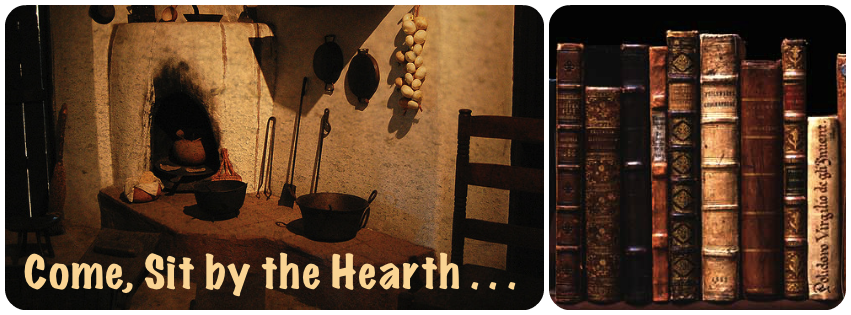
A note about BOOK REVIEWS. Sort Of.:
These are not, in any way, meant to be comprehensive reviews. They are intended to acknowledge that I have read the book, and give my honest core impressions.
If a real review is what you wish, there are many wonderful book blogs available, and I have provided some tools to find them under the tab marked "Useful."
Pagan Spring (audiobook) - G.M. Malliet
"Max couldn't say he opposed Thadeus' views on architecture, but what was it about the man that made him want to disagree, if only on principle? And what made Thadeud an expert anyway? The Bottle's new house was a known eyesore.
'At least we're finally getting a good reputation for cooking,' He said."
I have had the joy of reading a lot of wonderful authors over the years, but rare these days is one also a storyteller in the old fashioned vein. How do I explain what I mean by that?
The story tellers of my childhood were the Irish women like my grandmother, who told captivating tales of another world. When looked at objectively, the stories were simple. But they were imbued by these women with a rare magic that could transport the listener.
I feel a bit of that as I listen to these stories, and look eagerly forward to the next.
The Fire Dance (ebook) - Helene Tursten
"As soon as she had read the first chapter in the book, Irene had found herself irritated by all the mistakes the investigators were making. There were also a surprising number of wine enthusiasts and opera lovers in the literary police department."
The resolution to this one was not surprising, but it was still well written, with engaging characters.
It was also somewhat refreshing to read about a wet Swedish Autumn in the heat of a dry California Summer.
Out on the Cutting Edge (audiobook) - Lawrence Block
"Are you saying they can do a better job?"
I thought about it. "No," I said. "But they may be able to give the appearance."
This one had an added surprise at the end. Nice.
Indigo Slam (ebook) - Robert Crais
"I thought about Teresa and Charles and Winona, and how the daddy I was trying to find wasn't the same daddy that Terri was searching for, and I thought how sad it was that we often never really know the people around us, even the people we love."
Have you ever noticed that sometimes life is all messy and doesn't fall into easily definable categories? But we still have to make our choices and move forward as if it did.
So often, I cheer the hero on in a risky course of action that I believe will ultimately do the most good, all the while knowing that I could never be that brave in real life.
Sunset Express (ebook) - Robert Crais
"Women with ponytails raced along the wide boulevards on Rollerblades and shirtless young men pedaled hard on two-thousand-dollar mountain bikes,and everybody had great tans. Aging vaqueros selling rubber-hose churros weren't in evidence, but maybe I hadn't looked close enough."
Justice. Law. Right. Wrong.
The relationship between these words is a slippery and changeable one.
The Forgotten Man (ebook) - Robert Crais
"The world grew unstable when rain fell in Los Angeles. Soil held firm only moments before it could flow without warning like lava, sweeping away cars and houses like toys."
We don't always need the answers to our most burning questions, no matter how we feel driven to search for them.

The Sentry (ebook) - Robert Crais
"Twelve fucking million dollars and this guy is making sandwiches in Venice?"
"Po'boys."
(Don't get me wrong, I wouldn't mind trying.)
Murder Makes A Pilgrimage - Sister Carol Anne O'Marie
"'We've an old saying back home. . . .'
Mary Helen groaned.
Impervious as always to Mary Helen's reaction to her bits of wisdom, Eileen continued."
Sister Mary Helen continues her murder solving ways, even outside of the country.
Killer - Jonathan Kellerman
"All she had to do was keep her mouth shut. Not doing so was classic mediocre psychopath."
"Mediocre," he said. "What do the good ones do?"
"Run for office."
I wait a whole year for each new Alex Delaware novel, and this one was worth the wait, once again.
The Litter of the Law - Rita Mae Brown & Sneaky Pie Brown
"A silence followed this, then Susan said, "Nothing is simple, is it?"
"Not when it comes to human beings." Reverend Jones smiled. "What always strikes me is how most of us try to normalize an abnormal situation."
The murder mystery takes center stage, and while Ms Brown does have {an important message} she wishes to share, she has structured the plot well enough to support it.
This is much better than the last book in which I found her message a distraction from the plot.
The characters, themselves, were also much more pleasant to be with this time around.
Hard Time (ebook) - Sara Paretsky
"After fifty years of the Cold War, we've gotten into such a reflexive posture of belligerence that we start to chew up our own citizens."
Must ... confess ... some parts of this were hard ... to ... read ... while recovering from ... abdominal ... surgery.
All in all, another good one.



















































